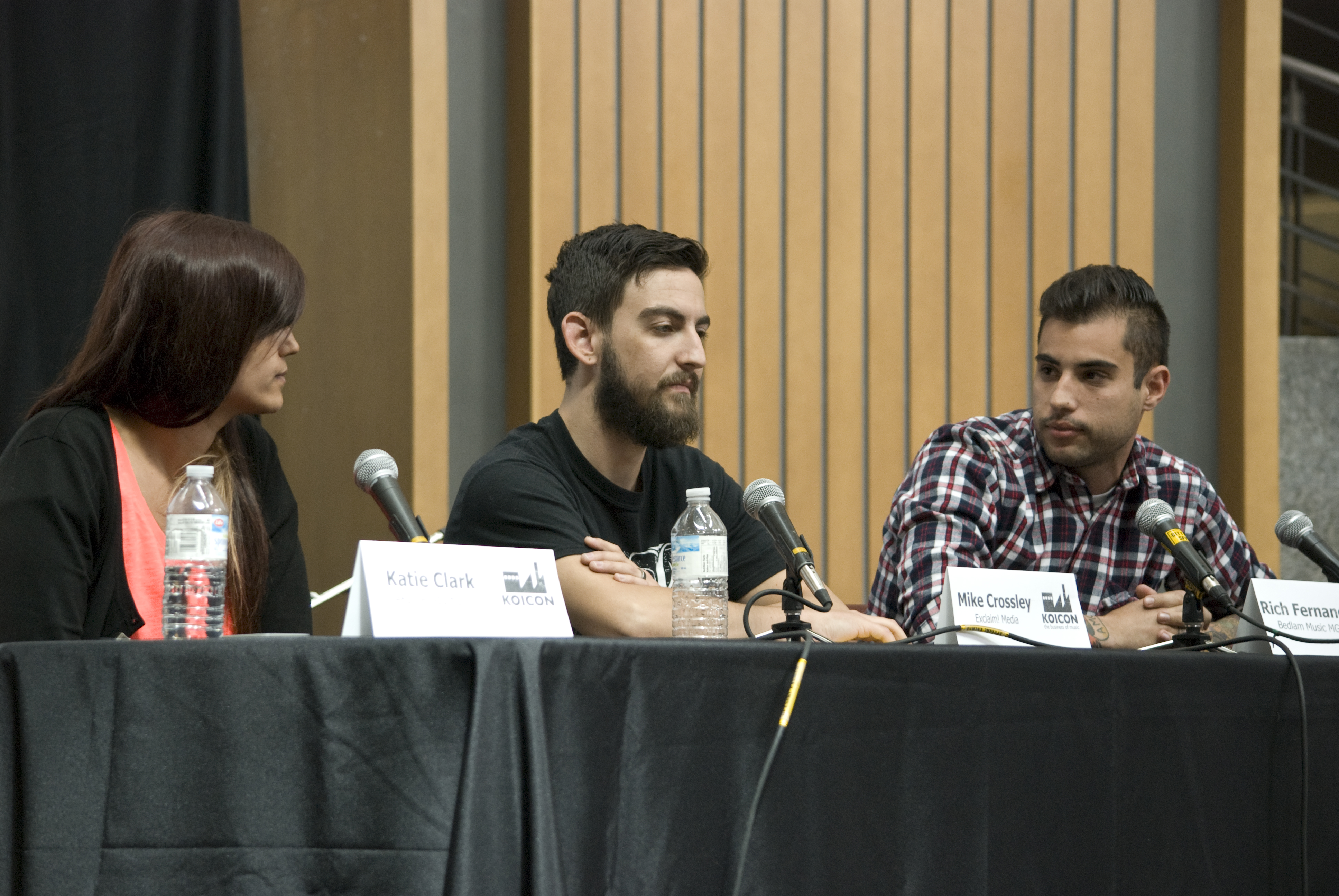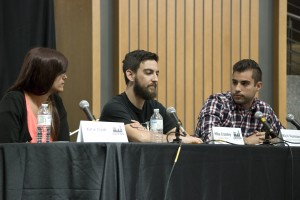KOI Con aims to inform musicians


Breaking into the music business as a successful musician is easily one of the hardest things one can aspire to—it is a road filled with rejection, self-doubt and eating a lot of Ramen noodles.
Thankfully Cory Crossman, founder of KOI Con, an independent conference hosted in Kitchener, Ontario, and co-founder of KOI Fest, is here to help. “Initially [my brother Curt and I] started the Koi Music Festival four years ago. We’d been promoting concerts for a while under ARC clothing … and we got tired of people talking about [Kitchener] being good so we decided to do something about it,” Crossman recalled. “[We realized that] it’s great to have people watch bands and coming out to shows but there’s more to it … How do we go about educating these bands and show them how to make a sustainable career in the industry? It’s not just about the musician, it’s about the industry.”
The first annual KOI Con is a day-long conference focusing on how to successfully break into the music industry. The day began with a key-note speech from self-proclaimed music geek Alan Cross, who broke down the ten rules to survive the music industry. Notable rules included “just because you make music doesn’t mean you deserve to be heard” and “you’re not going to make a lot of money selling music.”
Similarly, Cross made sure to remind musicians that entering the music industry was not going to be a simple task. “This isn’t Tim Horton’s soccer,” Cross warned the audience. “It is cutthroat. There are winners and losers.”
As the day continued, panels featuring industry insiders such as Bob Egan, of the bands Blue Rodeo and Wilco and Scott Honsberger, executive director from MusicOntario, focused on a variety of topics from “Live Performance” to “The Business of Music.” On top of this, attendees had the opportunity to sign up to sit down with some of the panelists to receive personalized advice from the people who know the music industry firsthand. The day then concluded with an award ceremony and, as a teaser for KOI Fest in mid-September, over 30 bands played in various venues in Kitchener.
Despite only being the first year in existence, KOI Con ran smoothly. The panels were generally informative though two panels would run at one time, forcing attendees to choose what panel they felt was more relevant to their situation. Though the main focus of KOI Con was to help musicians find their way, there was a secondary focus: the marriage of the music and tech industries. “One really important thing we wanted to get from this was that the tech community was very similar to the music community, the independent music community more specifically,” Crossman began. “Start-ups go through a lot of the same issues that bands have starting out though … the tech community is looking to the music community for a bit of support.” Crossman made sure to bring support for the tech community by inviting various tech companies to sit on panels and attend the conference.
With its first year a success, Crossman has plans to expand KOI Con into a longer conference that focuses on not only musicians, but developing the skillset of people who want to get into managing the musicians, stage lighting and more. This year’s KOI Con was just the beginning.

